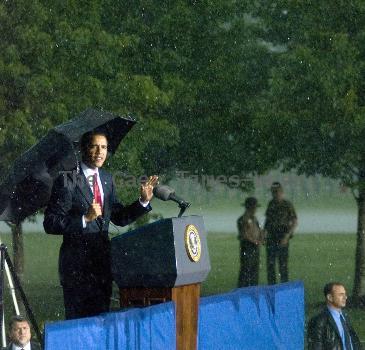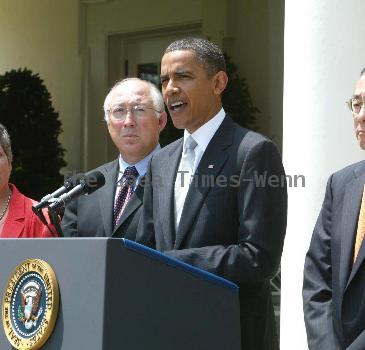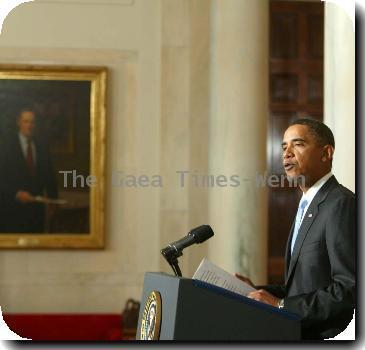MasterCard 2nd-quarter profit rises 31 percent on higher transactions, cost cutting
By APTuesday, August 3, 2010
MasterCard 2Q profit jumps 31 percent, tops view
NEW YORK — Anemic consumer spending in the U.S. was offset by strong international growth to help boost MasterCard Inc.’s second-quarter profit by 31 percent.
The gain topped Wall Street profit expectations, but fell short of the 38 percent leap in operating income posted by the company’s larger rival, Visa Inc., last week.
MasterCard shares slipped $1.76, to $200.70 in midday trading as the broader market sputtered.
MasterCard’s gains showed the Purchase, N.Y.-based payment processor’s reliance on overseas use of its cards and networks. Worldwide purchasing volume rose 8 percent, while U.S. purchasing volume eked out a gain of less than 1 percent.
Worldwide, credit card use rose 10 percent, while debit card use leaped 29 percent.
Chief Financial Officer Martina Hund-Mejean said in an interview that card use was particularly strong in Latin America and Asia Pacific, which both saw double-digit growth rates. “Even in Europe,” she said, alluding to the economic turmoil on the Continent in recent months. “We do not see any significant impact on our numbers in terms of the Europeans not spending.”
U.S. credit card use edged down 1.5 percent, continuing a two-year decline, but showing the smallest drop since the third quarter of 2008.
Debit card use edged up less than 1 percent. That reflects more frequent use of debit cards, but was held down by MasterCard’s loss of several debit card deals with banks, most notably the former Washington Mutual, which was bought by JPMorgan Chase in 2008. Hund-Mejean said U.S. debit growth was closer to 20 percent if the banks winding down their MasterCard programs are stripped out.
U.S. spending, particularly with credit cards, picked up in April but was less robust later in the quarter, Hund-Mejean said. “People still feel a little careful and cautious, and I think that’s what we saw in May and June,” she said.
Analysts noted the growth compared with a weak quarter last year. Thomas McCrohan from Janney Capital Markets said it is hard to read into the results to say whether they indicate any real improvement in the economy. But there was “nothing alarming” in the results. “There’s nothing that would support a double dip” of the recession, McCrohan said.
The number of transactions MasterCard handled was basically flat at 5.6 billion. Cross-border volume jumped 15.2 percent.
Net income rose to $458 million, or $3.49 per share, compared with $349 million, or $2.67 per share, a year ago.
Revenue rose 7 percent to $1.37 billion from $1.28 billion in the 2009 second quarter. MasterCard said the revenue increase reflected the higher cross-border volumes, higher gross dollar volume of the transactions it processed and the impact of price increases of 4 percent.
Wall Street expected earnings of $3.33 per share on revenue of $1.38 billion.
Total operating expenses dropped 10 percent to $648 million. The decrease was led by a drop in severance and compensation costs as a result of layoffs in 2009.
President and CEO Ajay Banga said it is too early to tell what results MasterCard will feel from the limits on debit card fees included in the financial overhaul bill signed by President Barack Obama last month.
“I know that everybody is eager to fully understand the impact on our business, but the truth is we just have to wait for the (Federal Reserve) to develop the regulations, and for our customers to react, before we will know the full implications both for the industry and for our company,” he said during a conference call.
Banga noted there are a number of options for implementing the new rules, and quipped that MasterCard benefits in this case from having a smaller market share of U.S. debit than Visa.
Regardless of the new regulations, Banga said he doesn’t see the shift from cash and checks to electronic payments slowing down. He spoke enthusiastically about a number of pilot projects and overseas ventures MasterCard has to expand its network beyond card payments. Deals the company struck on mobile payments in Latin America, money transfer services in China and contactless payments in the U.S. position MasterCard for continued growth as the payments market evolves, he said.
David Parker, an analyst with Lazard Capital Markets, said it will be a few years before “electronic wallets” are a reality, and there are some challenges in terms of customer and merchant adoption, but it is clear the market is moving in that direction. MasterCard’s investments in this area could help it overcome its disadvantage in debit cards. “I think there is an opportunity there with mobile commerce,” he said.
Tags: Barack Obama, New York, North America, United States



